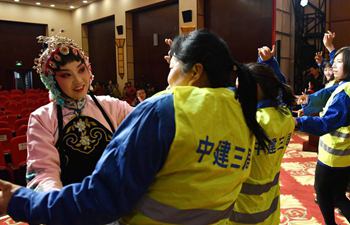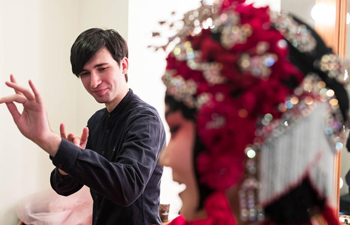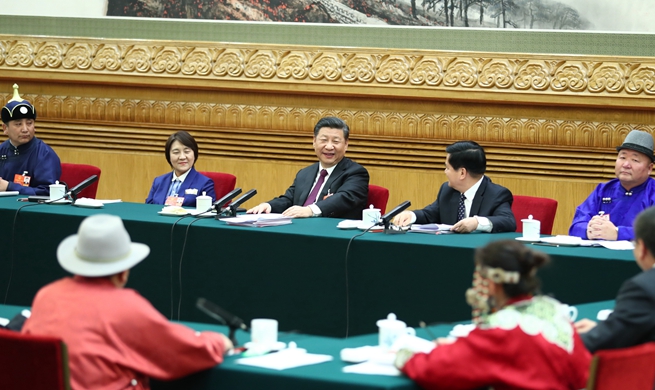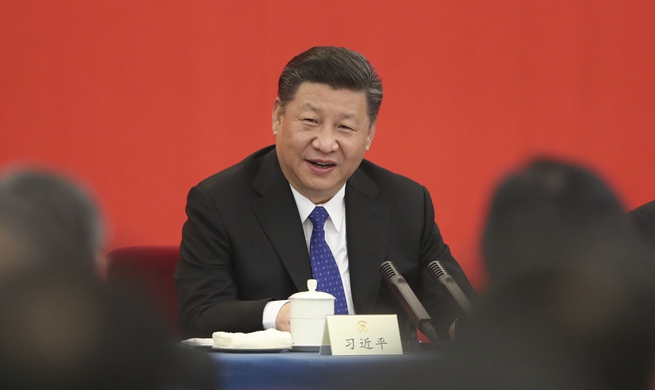CHICAGO, March 6 (Xinhua) -- Researchers at Washington University School of Medicine in St. Louis have used a gene-editing technology called CRISPR to engineer human T cells that can attack human T cell cancers without succumbing to friendly fire.
The study evaluating the approach in mice has been published online in the latest issue of the journal Leukemia.
Cancerous T cells and healthy T cells have exactly the same protein CD7 on their surfaces.
The researchers first generated a novel CAR-T strategy targeting CD7, allowing for the targeting and killing of all cells with CD7 on the surface.
"But if we program T cells to target CD7, they would attack the cancerous cells and each other, thus undermining this approach," said senior author John F. DiPersio, a professor of Medicine in Oncology at the university.
"To prevent this T cell fratricide, we used CRISPR/Cas9 gene editing to remove CD7 from healthy T cells, so they no longer carry the target," DiPersio said.
To do this, the researchers genetically deleted the T cell receptor alpha (TCRa) subunit. This way, T cells from any normal donor can be used without risk of life-threatening toxicities such as graft-versus-host disease, in which T cells attack the organs of the recipient, sometimes resulting in death.
This new approach also may have broad implications for the CAR-T field, allowing for use of therapeutic T cells from any healthy donor.
Healthy T cells could be collected in advance and stored for any patient with a relapsed T cell malignancy.
"We have genetically modified these T cells so they are unable to cause graft-versus-host disease but can still kill cancerous cells," said first author Matthew L. Cooper, an instructor in medicine of the university.
"One additional benefit of this approach is that a patient could receive this therapy much more quickly after diagnosis. We wouldn't need to harvest the patient's own T cells and then modify them, which takes time. We also wouldn't have to find a matched donor. We could collect T cells from any healthy donor and have the gene-edited T cells ready in advance, a strategy termed 'off-the-shelf' CAR-T cell therapy," Cooper said.
The researchers demonstrated that this approach is effective in mice with T cell acute lymphoblastic leukemia (T-ALL) taken from patients.
Mice treated with the gene-edited T cells targeted to CD7 survived 65 days, compared with 31 days in a comparison group that received engineered T cells targeting a different protein.
Besides, the researchers found no evidence of graft-versus host disease in mice that received T cells lacking the molecular machinery that sees healthy tissues as foreign.
They also found that the therapeutic T cells remained in the blood for at least six weeks after the initial injection, suggesting it could ramp up again to kill cancerous T cells if they return.

















